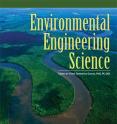Where has all the Gulf spill oil gone?
Many questions remain about the fate and environmental impact of the marine oil caused by the massive spill in the Gulf of Mexico from the Deepwater Horizon offshore drilling platform. A predictive model based on engineering design tools is described in an article in Environmental Engineering Science, a peer-reviewed journal published by Mary Ann Liebert, Inc. www.liebertpub.com). The article is available free online at www.liebertpub.com/ees Unlike more common surface spills, the Deepwater Horizon incident was the first spill to release large amounts of oil at a significant depth (about 5,000 feet). It was also the first deepwater spill in which chemical dispersants were directly added to the oil pouring out of the wellhead. As a result, what will happen to all of this oil, where it will go, and what effects it will have on the environment are not well understood.
Chemical engineers Louis Thibodeaux and Kalliat Valsaraj, Louisiana State University (Baton Rouge), and Vijay John, Kyriakos Papadopoulos, Lawrence Pratt, and Noshir Pesika, Tulane University (New Orleans, LA), developed a computer model to predict the environmental fate and impact of the oil and chemical dispersant. The predictive tool they describe in the article "Marine Oil Fate: Knowledge Gaps, Basic Research and Development Needs; A Perspective Based on the Deepwater Horizon Spill" will be useful for risk assessment and decision-making as scientists manage this and future spills.
"This important article by well-respected researchers looks at one of the Nation's worst environmental disasters. Based on their many years of experience, they provide valuable retrospective insights as well as suggestions for the future developmental needs to ensure that the Deepwater Horizon Spill remains an unfortunate and isolated event," according to Domenico Grasso, PhD, Editor-in-Chief and Vice President for Research, Dean of the Graduate College, University of Vermont (Burlington).
Source: Mary Ann Liebert, Inc./Genetic Engineering News
Articles on the same topic
- Scientists urge new research policies in wake of Gulf disasterThu, 3 Feb 2011, 21:07:42 UTC
Other sources
- Scientists urge new research policies in wake of Gulf disasterfrom PhysorgThu, 3 Feb 2011, 21:04:07 UTC
- Scientists urge new research policies in wake of Gulf disasterfrom Science BlogThu, 3 Feb 2011, 21:00:56 UTC
- Expert: Comment on Latest Oil Spill Dispersant Newsfrom Newswise - ScinewsThu, 3 Feb 2011, 18:02:59 UTC
- Gulf 'to recover by end of 2012'from BBC News: Science & NatureThu, 3 Feb 2011, 12:31:38 UTC
- Oil Dispersants Persist in the Deepfrom C&ENWed, 2 Feb 2011, 18:40:14 UTC
- Report Foresees Quick Gulf of Mexico Recoveryfrom NY Times ScienceWed, 2 Feb 2011, 6:00:25 UTC
- Where has all the Gulf spill oil gone?from Science DailyTue, 1 Feb 2011, 18:30:48 UTC
- Where has all the Gulf spill oil gone?from Science BlogTue, 1 Feb 2011, 18:05:58 UTC
- Where has all the Gulf spill oil gone?from PhysorgTue, 1 Feb 2011, 17:33:11 UTC
